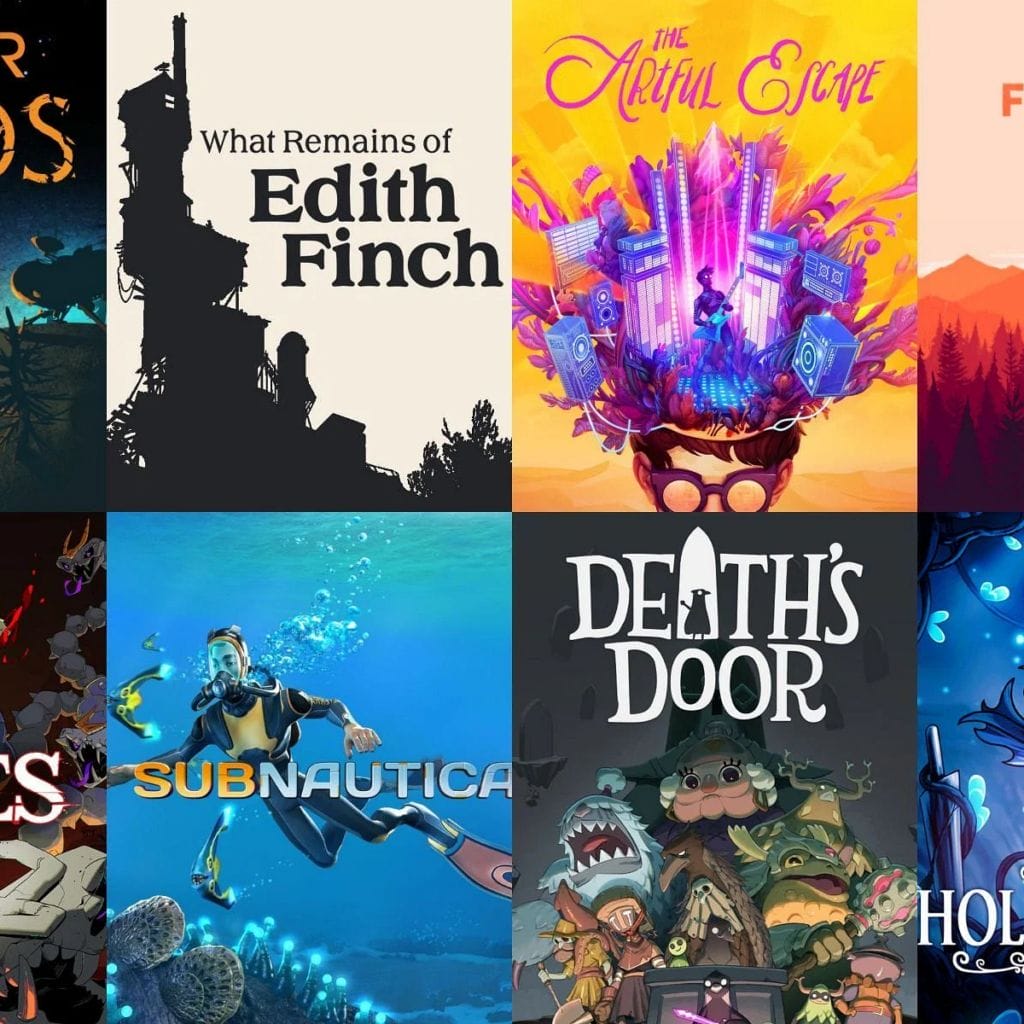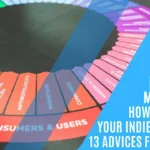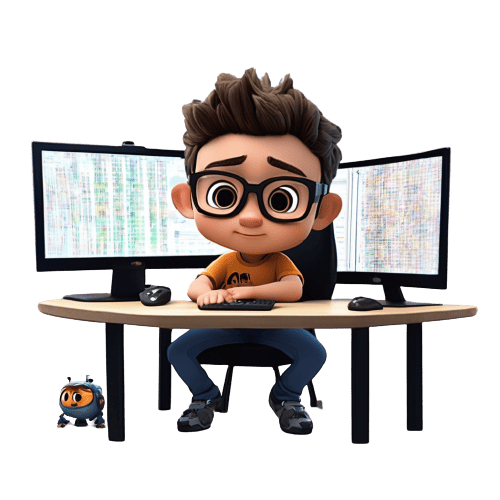In this article we will start a serie of posts on unlocking the mistery of indie games, and in starting by the beginning what is an indie game?

Content: Unlock the Mystery of Indie Games
Have you ever wondered what an Indie game is? What makes them different than big budget games? Are they only for the hardcore gamers among us? Are there any benefits to playing them? Well, you’ve come to the right place. In this blog post, we’ll explore the answers to these questions and more.

What is an Indie Game ?
An Indie game, also known as an independent game, is a video game that is created by a studio or developer that is not associated with a major game publisher. Indie games are typically created by small teams of developers with limited resources and funding. Indie games are often created with the intent to be different from more mainstream games, and to appeal to a niche audience.
Indie games are typically released for multiple platforms, including PC, Mac, iOS, Android, Xbox, PlayStation, and Nintendo. Indie games also come in many different genres, from puzzle and adventure to platformer and strategy. Indie games are known for their unique narratives, art styles, and gameplay.
Indie games are often the product of a passionate team of developers who are passionate about creating a unique and engaging experience for players. Indie developers often put their heart and soul into their games, and it shows. Indie games often have unique art styles, innovative gameplay mechanics, and thought-provoking narratives.
Indie games are also often developed with a limited budget, which can lead to some interesting and innovative ideas. Indie developers have to be creative in order to make the most out of their limited resources. This often leads to some of the most creative and unique game experiences out there.
What are the Benefits of Indie Games?
Indie games have a lot of benefits, both for the developers and the players. For developers, indie games can be a great way to gain experience and build a portfolio of work. Indie games allow developers to experiment with new ideas and push the boundaries of game design.
For players, indie games offer a unique and often more creative experience than more mainstream games. Indie games often have unique art styles, innovative gameplay mechanics, and thought-provoking narratives. Indie games can also be more affordable than big budget games, making them accessible to a wider range of players.
Indie games also often have a more personal connection with the developers. Players can interact with the developers and give their feedback, which can lead to more meaningful relationships and a deeper connection to the game.
How to Find Work with Indie Developers?
Finding work with indie developers is not as difficult as you might think. There are a few different ways to go about it.
The first is to reach out to indie developers directly. Look for job postings on game development forums, social media, and game development websites. You can also reach out to indie developers via email or social media.
Another way to find work with indie developers is to look for game jams. Game jams are events where developers come together to create a game in a short period of time. These events are a great opportunity to network and show off your skills. You can also look for game development competitions, which can be a great way to get your foot in the door with indie developers.
Finally, you can look for internships or volunteer positions with indie developers. These positions can be a great opportunity to get hands-on experience with game development and potentially make connections that can help you find work in the future.
What Does it Take to Become an Indie Game Developer?
Becoming an indie game developer takes a lot of hard work and dedication. You will need to be passionate about game development and be willing to put in the time and effort to learn the skills needed to be successful. You will also need to be creative and be able to think outside the box to create unique and engaging experiences for players.
You will also need to have a good understanding of game development technology, such as computer programming and game engines. You should also be familiar with game design principles, such as narrative design, level design, and gameplay mechanics.
Finally, you should have a good understanding of the business side of game development. You should be familiar with marketing and promotion, as well as the legal aspects of game development.
What Resources are Available for Indie Game Development?
There are a variety of resources available for indie game development. The first is online forums and social media. These are a great way to find like-minded developers and ask questions. You can also find tutorials and resources to help you learn the necessary skills for game development.
Another great resource is game development conferences. These are a great way to network and meet other developers, as well as learn about the latest technologies and trends in the industry.
Finally, there are a variety of books, websites, and magazines dedicated to game development. These are a great source of information and can be invaluable for indie developers.

What are the Challenges of Indie Game Development?
Indie game development can be challenging, but also rewarding. One of the biggest challenges is finding the resources needed to develop your game. As an indie developer, you will likely need to find a way to fund your game, either through crowdfunding or other sources.
Another challenge is finding the right team to work with. As an indie developer, you may need to find talented developers, artists, and designers who are willing to work with you. You also need to find people who are passionate about your project and willing to put in the necessary time and effort to make it a success.
Finally, you need to be able to promote your game. As an indie developer, you will likely need to find ways to get the word out about your game. This can be a challenge, but it can also be rewarding when you see people enjoying your game.

What are the Different Types of Indie Games?
Indie games come in a variety of genres and styles. Some of the most popular genres include platformers, puzzle games, adventure games, and strategy games. Indie games can also be classified by style, such as pixel art, 8-bit, and retro.
Indie games are also often categorized by their narrative and themes. Some popular themes include horror, fantasy, science fiction, and romance. Indie games can also have different types of gameplay, such as turn-based, real-time, and roguelike.


What Do Indie Game Companies Look for in a Developer?
Indie game companies are looking for developers who are creative, passionate, and knowledgeable. They want developers who have a good understanding of game development technology, such as computer programming and game engines. They also want developers who have an understanding of game design principles, such as narrative design, level design, and gameplay mechanics.
Indie game companies are also looking for developers who have a good understanding of the business side of game development, such as marketing and promotion. They want developers who have the ability to create engaging experiences for players.
What is the Difference Between an Indie Game and a Big Budget Game?
The biggest difference between an indie game and a big budget game is the budget. Indie games are typically created with a much smaller budget than big budget games. This can lead to some interesting and innovative ideas, as developers need to be creative in order to make the most out of their limited resources.
Indie games also often have a more personal connection with the developers. Players can interact with the developers and give their feedback, which can lead to more meaningful relationships and a deeper connection to the game.
Big budget games often have more resources available, which can lead to higher production values. However, this can also lead to a less creative and more formulaic experience.

PROS AND CONS OF BEING AN INDIE GAME DEVELOPER
Being an indie game developer can be a challenging but rewarding experience. On one hand, there are many pros to being an independent game developer. These include:
Pros
The pros of being an indie game developer include:
- The ability to explore unique and experimental ideas, as indie studios are not constrained by the need to make the most money.
- Fast feedback tracking, as indie teams are usually small and can respond quickly to player complaints and suggestions.
- The ability to focus on a specific aspect of the game, such as beautiful graphics or an exciting storyline, which can lead to a deeper emotional connection with players.
- No clear deadlines, allowing for creative expression and the ability to work on the game voluntarily.
- Recognition and the potential to set new trends in the gaming industry.
- The pros of being an indie game developer include:
- The ability to explore unique and experimental ideas, as indie studios are not constrained by the need to make the most money.
- Fast feedback tracking, as indie teams are usually small and can respond quickly to player complaints and suggestions.
- The ability to focus on a specific aspect of the game, such as beautiful graphics or an exciting storyline, which can lead to a deeper emotional connection with players.
- No clear deadlines, allowing for creative expression and the ability to work on the game voluntarily.
- Recognition and the potential to set new trends in the gaming industry.
CONS
The cons of being an indie game developer include:
- Lack of experience, which can lead to poorly thought out gameplay or unfinished aspects of the game.
- Limited resources, which can result in poor graphics, short gameplay, and problems with promoting the finished game.
- An oversaturated market, which makes it difficult for indie games to stand out among the many other releases.
- Poor marketing, which can result in the game going unnoticed by players.
- Management problems, such as difficulties coordinating tasks among the team and balancing workloads.
- Lack of financial support as they have to rely on personal savings or crowdfunding.
- Difficulty in getting the game on major platforms and reaching a wide audience.
- Limited budget often means less freedom to hire specialized staff, such as sound engineers or professional testers.

What is the Future of Indie Games?
The future of indie games looks bright. There are a growing number of developers who are passionate about creating unique and engaging experiences for players. With the rise of digital distribution platforms, such as Steam, the App Store, and the Google Play Store, indie games have become more accessible to a wider audience.
The indie game industry is also growing, with more and more people turning to indie games as a way to create unique experiences. Indie games are becoming more popular and more mainstream, with more big budget publishers taking notice.

Conclusion
Indie games are an exciting and unique way to experience games. They offer a creative and often more affordable experience than big budget games. They are also often created with passion and love, which can lead to a more meaningful connection with players.
If you’re interested in getting into indie game development, there are a variety of resources available to help you get started. You can reach out to indie developers, look for game jams, or look for internships and volunteer positions.
The future of indie games looks bright. With the rise of digital distribution platforms and growing interest in indie games, the industry is only going to continue to grow. So if you’re looking for a unique and creative game experience, look no further than indie games.







